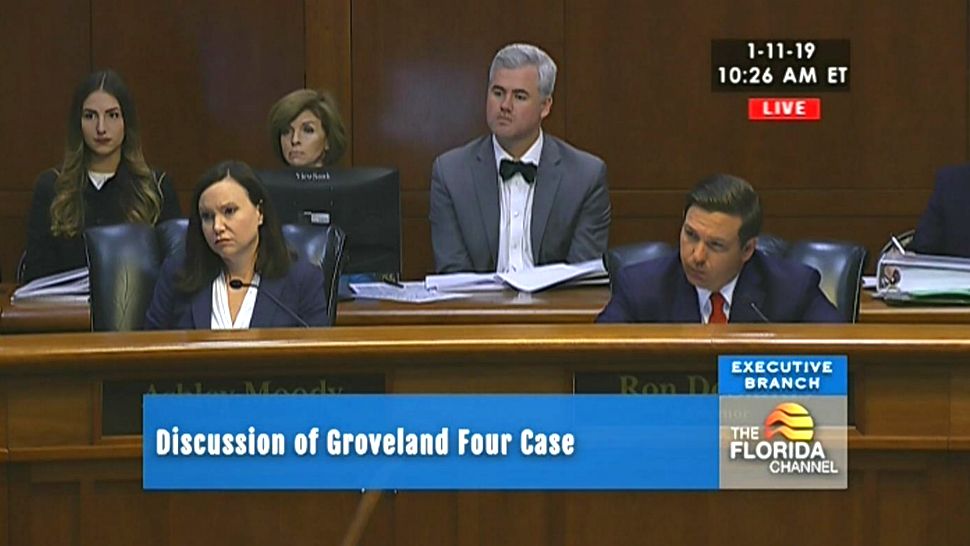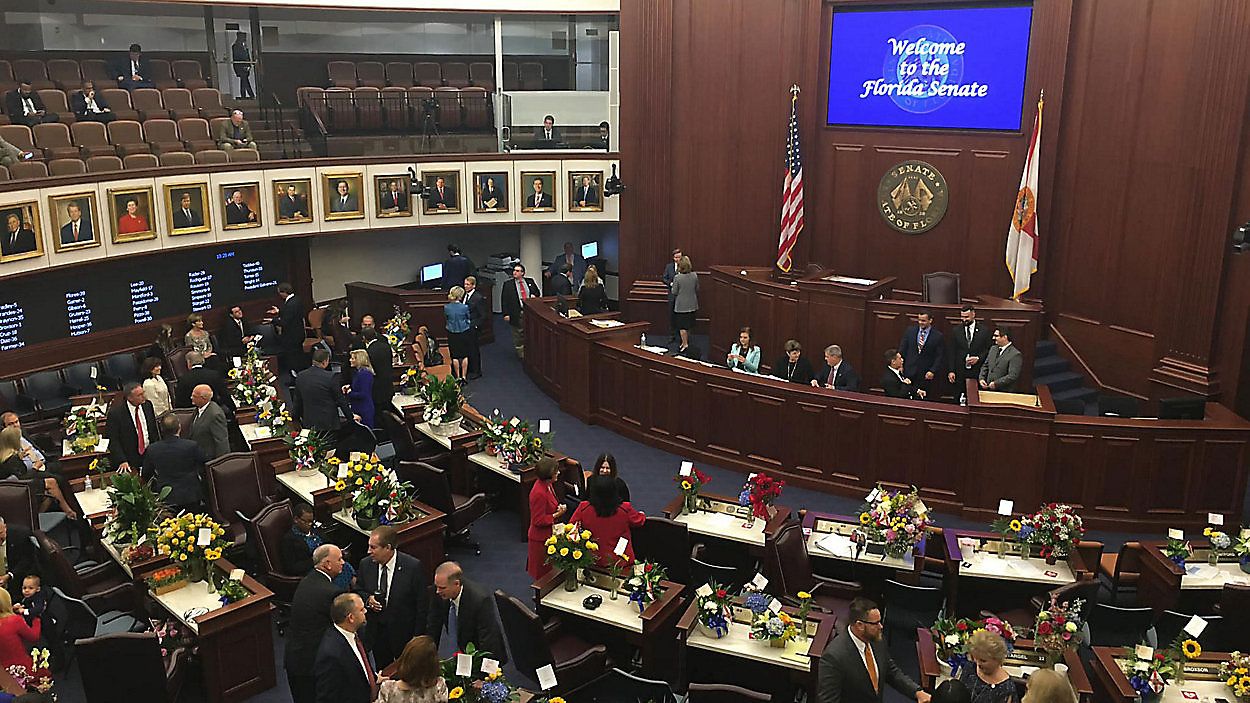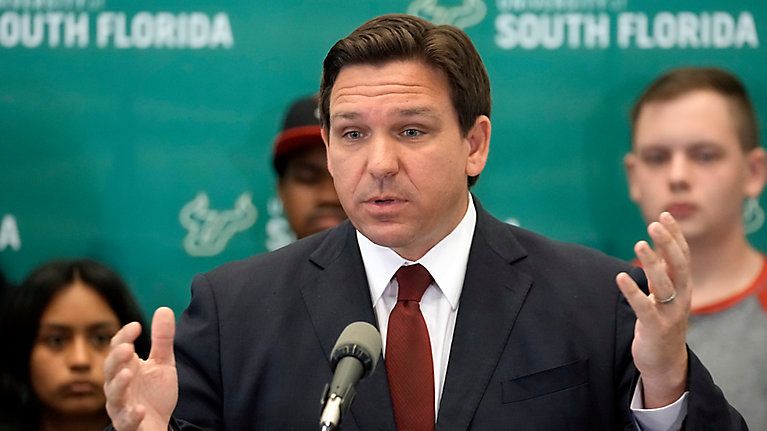TALLAHASSEE, Fla. — Despite pleas from the woman who said she was raped by the "Groveland Four" 70 years ago, a state clemency board and Gov. Ron DeSantis granted the men a long-sought posthumous pardon Friday.
- DeSantis, clemency board grant posthumous pardon to "Groveland Four"
- In 1949, 4 black men were wrongly accused of raping white girl
- City of Groveland, Florida Legislature had already apologized to men
- Lawmakers from Nikki Fried to Sen. Marco Rubio had pushed for pardon
- RELATED:
In a meeting at the Capitol, the board heard testimony from 87-year-old Norma Padgett, who claimed she was raped by the four black men in 1949.
"I'll tell you now, that it's on my mind and it's been on my mind for 70 years. I was 17 years old, and it's never left my mind," Padgett said.
Through the decades, Padgett has maintained her story.
"I never told my kids. They knew it but they never did know what kind of horror I'd been through," Padgett said to the clemency board Friday. "I don't want them pardoned, and you wouldn't neither. ... I ain't no liar."
But DeSantis and the board were unswayed, unanimously granting the pardon.
"I don't know that there's any way you can look at this case and think that those ideals of justice were satisfied. Indeed, they were perverted," DeSantis said. "I think that the way this was carried out was a miscarriage of justice."
During their testimony imploring the clemency board for pardons, family members of the Groveland Four fought back tears.
Carol Greenlee told the board that the life sentence her father, Charles, served was handed down by a racist, prejudicial system of justice that was all too common in the South back then.
"It is a weight lifted. It is a cloud lifted. It's the dignity of being a Greenlee restored," Carol Greenlee said. "It's the shame taken away. It's being let out of prison from a lie that has plagued our family for all these years."
DeSantis had said he wanted to consider a pardon for the accused men and before his inauguration vowed to clear the men's names when he took office.
In 1949, the four young black men — Ernest Thomas, Walter Irvin, Samuel Shepherd, and Charles Greenlee — were accused of raping 17-year-old Padgett in the Florida town. Two of the men were Army friends; Greenlee was just 16.
Thomas was shot and killed by a posse before making it to trial. Irvin, Shepherd, and Greenlee were convicted by an all-white jury, despite a witness and doctor saying there was dubious evidence. They were eventually granted a retrial by the Supreme Court, but before the trial, Shepherd and Irvin were shot by Sheriff Willis McCall. Shepherd died. McCall claimed the handcuffed men tried to attack him.
The city of Groveland had already apologized to the four men and so, too, had the Florida Legislature.
In 2017, the state House and Senate voted unanimously to formally apologize to the men's families and asked then-Gov. Rick Scott to pardon them, but he took no action.
"It should have happened a long time ago, but justice delayed is not necessarily justice denied, and hopefully the new governor will act in a manner that will put his place in history," said Bill Gary, president of the Harry T. & Harriette V. Moore Cultural Complex, Inc.
At the clemency hearing, Lake County representatives called it twisted justice.
"I agree pardon is not the right word. The right word is 'exonerate,' because it never happened," said Dr. Beverly Robinson, a cousin of Shepherd.
Florida Agriculture Commissioner Nikki Fried had also been a vocal advocate for clemency. The state's clemency board consists of the governor, attorney general, agriculture secretary, and chief financial officer.
Fried is calling for full exonerations of the Groveland Four, which can only happen after a formal review by the Florida Department of Law Enforcement.










